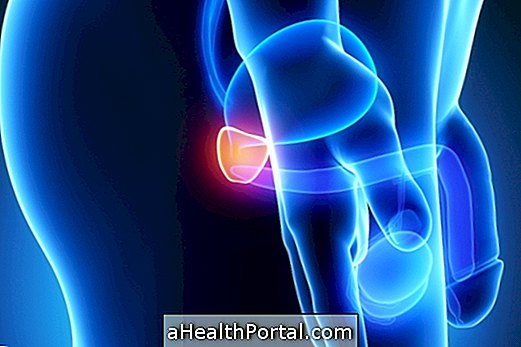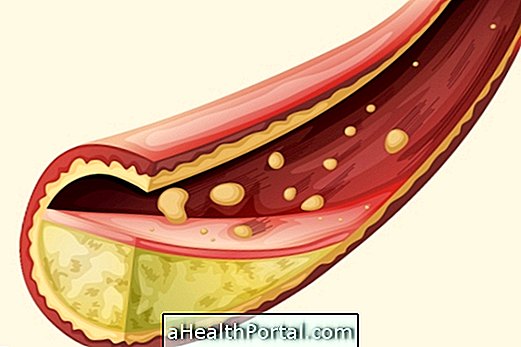Intense abdominal pain and blood loss through the vagina are the main symptoms of ectopic pregnancy, which is when the embryo is developing outside the uterus.
About 95 percent of the time when the embryo is not found inside the uterus, it is in the fallopian tubes, but it can also develop in the abdominal cavity, ovary, the broad ligament, the cervix, or the tubal interstitium. And knowing exactly where the embryo is is important to know the best treatment, since when it is in the abdominal cavity the pregnancy can continue although it is a rare and delicate situation.

Symptoms of ectopic pregnancy
The ectopic pregnancy route is when the embryo is developing in the fallopian tubes and is already large enough to rupture the woman's fallopian tube. In this case the woman has the following signs and symptoms:
- Severe abdominal pain, only on one side of the belly;
- Irregular vaginal bleeding, especially between the 5th and 14th week of gestation;
- Sensation of weight in the vagina;
- Severe pain on palpation of the uterus;
- Swollen abdomen;
- Beta HCG test is usually negative.
In the case of pregnancy outside the uterus, but without signs of ruptured tubes, the symptoms may be:
- Abdominal pain or discomfort;
- Vaginal bleeding after last menstruation;
- Severe pain on palpation of the uterus;
- Pain during intimate contact or during pelvic examination;
- Beta HCG test is usually positive.
If you suspect you should go to the hospital immediately so the doctor can perform an ultrasound that can confirm the ectopic pregnancy and indicate the most appropriate treatment to solve the problem. The best way to know if the embryo is developing outside the uterus is through the ultrasound performed by the doctor because the Beta HCG test does not always give a positive result.
Until when can it be ectopic pregnancy?
Pregnancy in the fallopian tubes or ovaries can develop until 14 weeks of gestation, and if this happens it is not possible to save the life of this embryo because there are no medicines or procedures that can move the embryo from the fallopian tubes to the uterus. When ectopic pregnancy develops in places other than the fallopian tubes, as in the abdominal cavity it can be discovered later, but always through ultrasound.
How is the treatment done?
Treatment for ectopic pregnancy should be guided by an obstetrician, because it depends on the exact location of the embryo, but can be done with the use of medicines to promote abortion or surgery for embryo removal and reconstruction of the uterine tube, for example.
In some cases, when ectopic pregnancy is discovered before 8 weeks of gestation, and the embryo is very small, the doctor may indicate a medication called Methotrexate to induce abortion, but when the pregnancy is more advanced, it should be performed surgery for its withdrawal.
Learn more details of treatment in case of ectopic pregnancy.





















